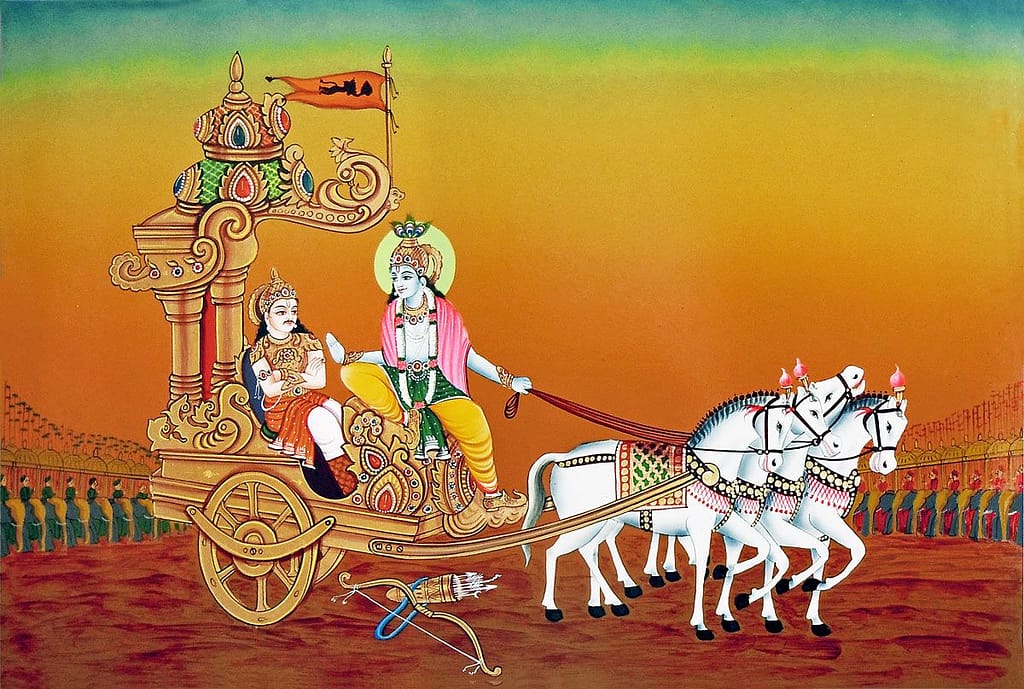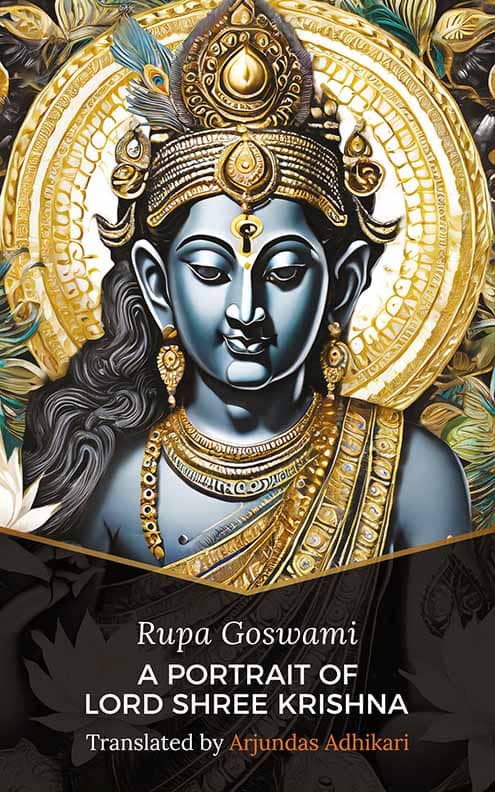
The Sanskrit compound word, punar janma is indicative of repetitious birth and death (punar – again, janma – birth). Since our past lives are usually forgotten, the upshot of that is that we continue the unsuccessful attempt to try and secure happiness in a world that is temporary.
In our hearts, though, the existential crisis incurred by this monotonous endeavour is palpable. Luckily, the inner frustration it’s responsible for does raise a most valuable query: it inspires a serious quest to find out more about the nature of existence. Answers are sought. And answers are sometimes found.
This search may well lead one to hear Krishna’s answers to questions surrounding the nature of existence. During His time, Krishna became well known for advising on spiritual topics. For terminating existential dissatisfaction, Lord Krishna suggested we study how He acted, and hear Him with an open mind. This, He said, could begin the journey of liberation by bolstering a sense of eternality through being in touch with Krishna’s eternality. Krishna Himself, He claimed, was never mired by any kind of self-forgetfulness, or illusion.
Well, this would give fantastic significance to Rupa Goswami’s Sanskrit drama called Vidagdha Madhava. The magic of Vidagdha Madhava (aka A Portrait of Lord Shree Krishna) naturally entices us into Krishna’s world. It is certainly an intriguing notion that one may only have to attend a performance of A Portrait of Lord Shree Krishna to be well on the way to liberation!
Here are Krishna’s own words:
Janma karma ca me divyam
Evam yo vetti tatvattah
Tyaktva deham punar janma
Naiti mam eti so’rjuna
“Those who come to appreciate the spiritual significance of my incarnation and deeds will not be reborn, indeed, they become liberated from rebirth.”
Bhagavad Gita 4.9
Salvation means different things to different thinkers, and regarding the kind of salvation promised above, we may find our own experiences open us up to a quite serious consideration of it . Deja-vu, for instance. Likewise, even though we might not normally identify ‘growing up’ with ‘reincarnating’, ‘reincarnating’, in a sense, is rolling by as we transition from children to adults. It’s just that we don’t term our transitioning from small, young bodies to big old bodies as ‘reincarnating.’
In any case, in that this Sanskrit drama I have translated by Rupa Swami, Vidagdha Madhava, (A Portrait of Lord Shree Krishna) primarily deals with the subject of Krishna, it has a significant theological context, a doctrine which supposes that the play is genuinely spiritual. That the simple act of attending a performance of it may free one from the dreaded punar janma; that one may thereby be liberated from the ghastly repetition of birth and death.
Arjundas Adhikari

